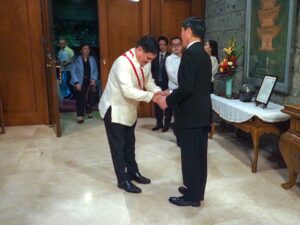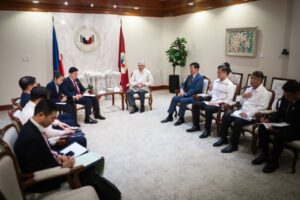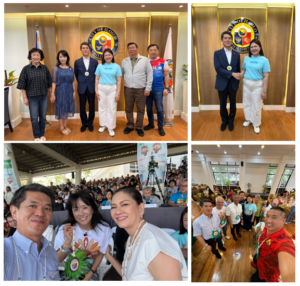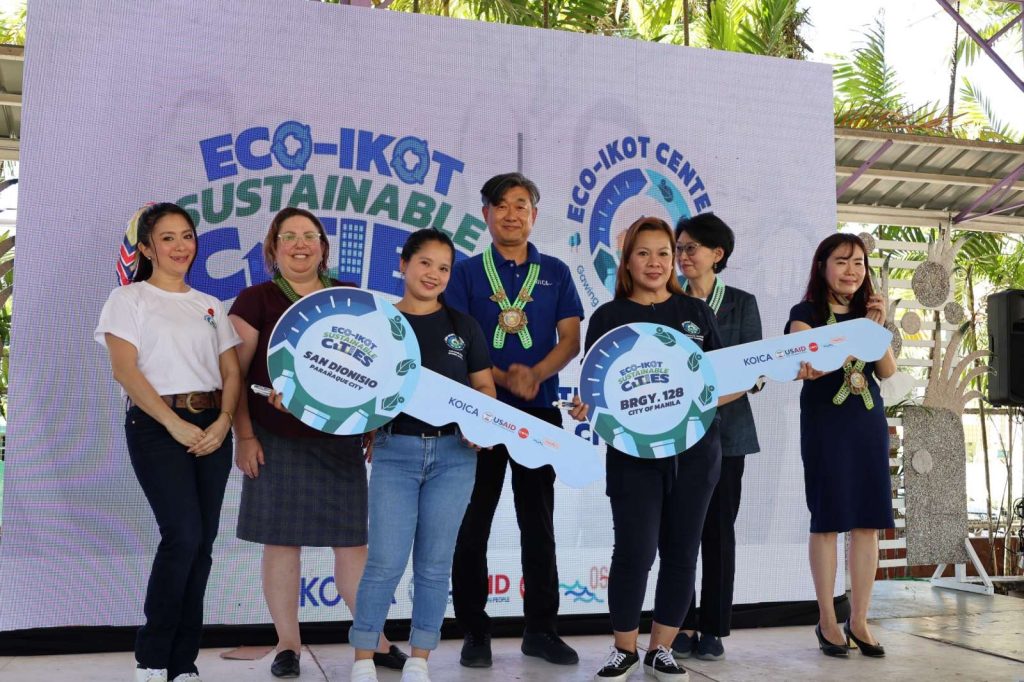
[CORA Philippines Executive Director Antoinette Taus (leftmost), USAID Deputy Assistant Administrator Sara Borodin (second from left), KOICA Country Director Kim Eunsub (center), OSEAN CEO Dr. Sunwook Hong (second from right), and Korean Embassy Vice Consul Jong-Mi Lee (rightmost) join CORA partners (holding the keys) to launch additional Eco-Ikot Centers]
United States Agency for International Development (USAID) Deputy Assistant Administrator for East Asia and the Pacific Sara Borodin recently visited the Philippines to launch environment and youth empowerment initiatives that reaffirm the United States’ enduring commitment to the Philippines’ inclusive and resilient growth.
During her visit, Deputy Assistant Administrator Borodin joined Korea International Cooperation Agency (KOICA) counterparts led by Country Director Kim Eunsub to announce additional waste collection and segregation facilities called “Eco-Ikot Centers” in Parañaque City and other parts of Metro Manila. This initiative is part of the ongoing five-year, PHP459 million (USD8.2 million) partnership between KOICA, USAID, and the Department of Environment and Natural Resources (DENR) to improve solid waste management, reduce landfill dependency, and mitigate pollution in Manila Bay and its surrounding areas.
“USAID is proud to partner with KOICA and the Philippines to address one of the greatest challenges of our time: reducing marine litter and protecting our oceans,” Borodin said. “As your partner in prosperity, the U.S. government, through USAID, remains committed to working with you to help protect not just the environment, but more importantly the livelihoods, health, food security, and well-being of future generations of Filipinos.”
In Zambales, Borodin met with Philippine government representatives and the private sector to discuss shared milestones through USAID’s five-year, PHP1.84 billion (USD33 million) Better Access and Connectivity (BEACON) project, which has launched nine community networks powered by innovative space broadband technology and provided internet access to more than 1,500 households.
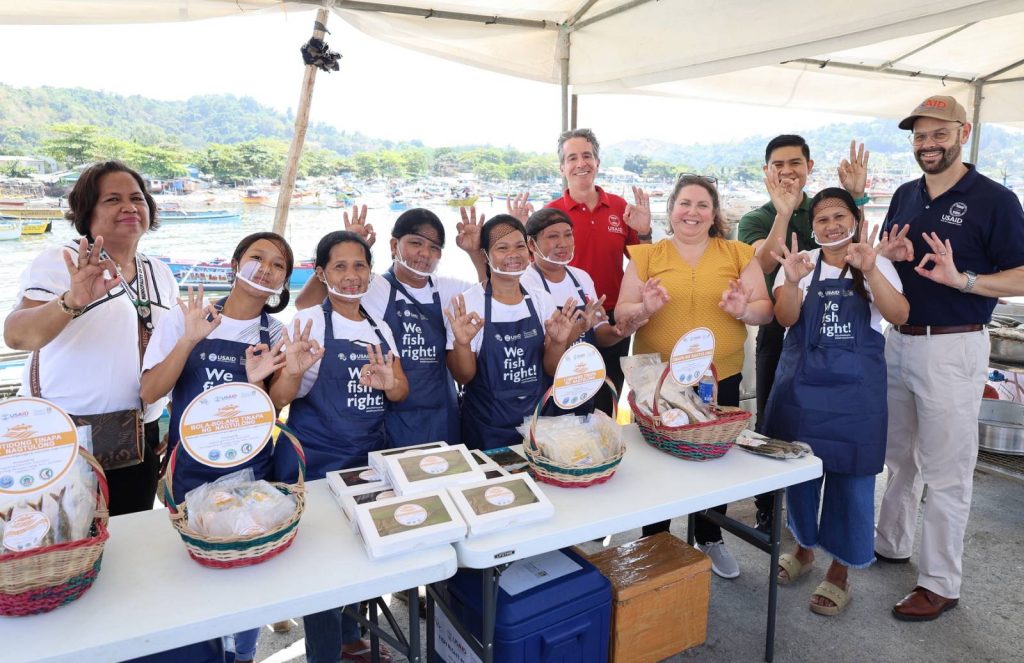
She also visited the Subic Fish Port, where she learned how USAID interventions have helped improve fishers’ income and resilience, helping them overcome the loss of livelihood resulting from overfishing in the South China Sea.
She also led the launch of USAID’s five-year, PHP1.6 billion (USD30 million) U.S.-Philippines Partnership for Skills, Innovation, and Lifelong Learning (UPSKILL) program that will bolster the global competitiveness of Philippine higher learning institutions.
Her other engagements include dialogues with USAID-supported upskilling trainees in Floridablanca, Pampanga, and former out-of-school youth in Valenzuela City. She also explored capacity-building opportunities in disaster preparedness with officials from the Department of Social Welfare and Development.
